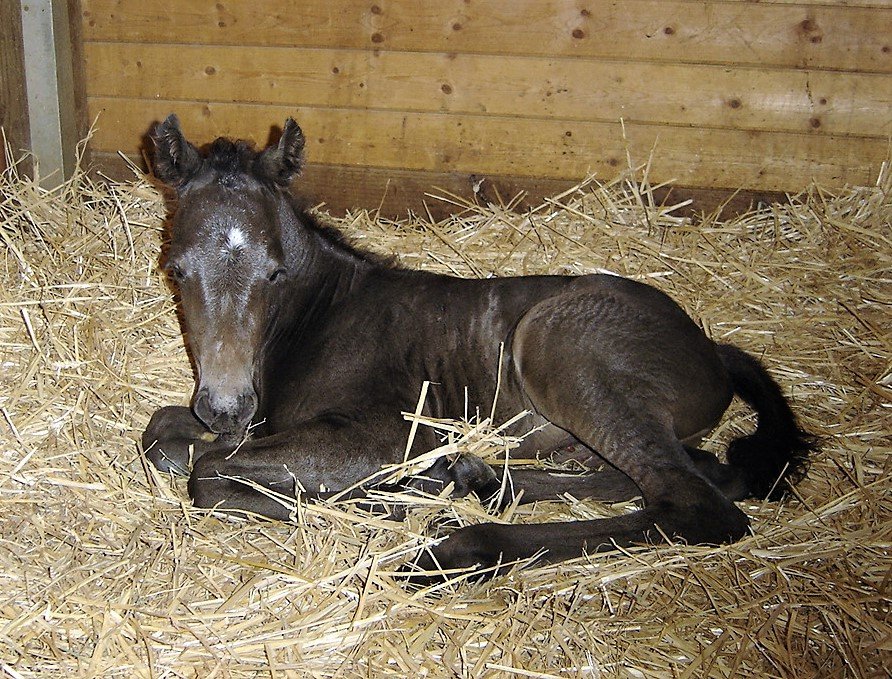The Importance of IgG Testing in Foals/Plasma Administration
by Owen Schumacher, DVM
Foals are considered immunologically naïve at birth and rely on antibodies absorbed from ingestion of the mare’s colostrum to have immunity to pathogens in their environment. During the last 1-2 weeks of a mare’s gestation, colostrum is formed as antibodies are concentrated in the mammary glands. Foals can effectively absorb these antibodies only during their first 8-16 hours after birth. Failure of passive transfer (FPT) of antibodies occurs in 10-20 % of newborn foals. Failure of passive transfer occurs if the circulating concentration of antibodies, particularly immunoglobulin G (IgG), are less than 800 mg/dL. Common causes of FPT include poor-quality colostrum, premature lactation, inability or lack of desire by the foal to nurse, and rejection of the foal by the mare. Foals with FPT cannot fight off infection effectively on their own and so are susceptible to developing pneumonia, septic arthritis, and other infections.
Testing a foal soon after birth for its concentration of circulating antibodies can determine if the foal suffers from FPT and allows for early intervention. Testing a foal’s circulating IgG antibodies involves drawing blood as soon as 12-24 hours after birth. Sixteen to twenty-four hours after birth, oral supplementation of colostrum is ineffective because the specialized cells in a newborn foal’s small intestine that absorb the antibodies and transfer them into the blood stream lose their ability to absorb antibodies. Consequently, a foal more than 24 hours old diagnosed with FPT requires intravenous administration of plasma to increase the concentration of IgG antibodies in the blood.
Plasma is the liquid, cell-free component of blood. Hyperimmunized plasma contains a higher concentration of antibodies (IgG) than does non-hyperimmunized plasma. The higher concentration of antibodies found in hyperimmunized plasma provides greater protection from infection and promotes faster recovery from infection.
In addition to being used to prevent and treat conditions such as FPT, hyperimmunized plasma can also be collected from donors with antibodies to Rhodococcus equi or diarrhea causing organisms. Rhodococcus equi is a bacterium that inhabits the soil and can cause chronic pneumonia in foals 1 to 6 months old. There is no vaccine to prevent a foal from developing R. equi pneumonia. The only method available to reduce the incidence of pneumonia caused by R. equi is transfusion of foals with plasma from equine donors immunized against R. equi. Optimal results are seen when the first transfusion is administered within the first 24 hours of life and a second transfusion administered 3 to 6 weeks later.
With foaling season here ensure your foal's well-being with our expert equine care services! Give us a call today to schedule a comprehensive checkup for your newest addition. Our veterinarians are experienced in foal care, providing thorough examinations and personalized attention to address any concerns. At Oakhurst, we prioritize the health and happiness of your equine companions. Call our office at 503-554-0227 or email office@oakhurstequine.com now and give your foal the best start in life. Trust us for top-notch veterinary care that your foal deserves!


